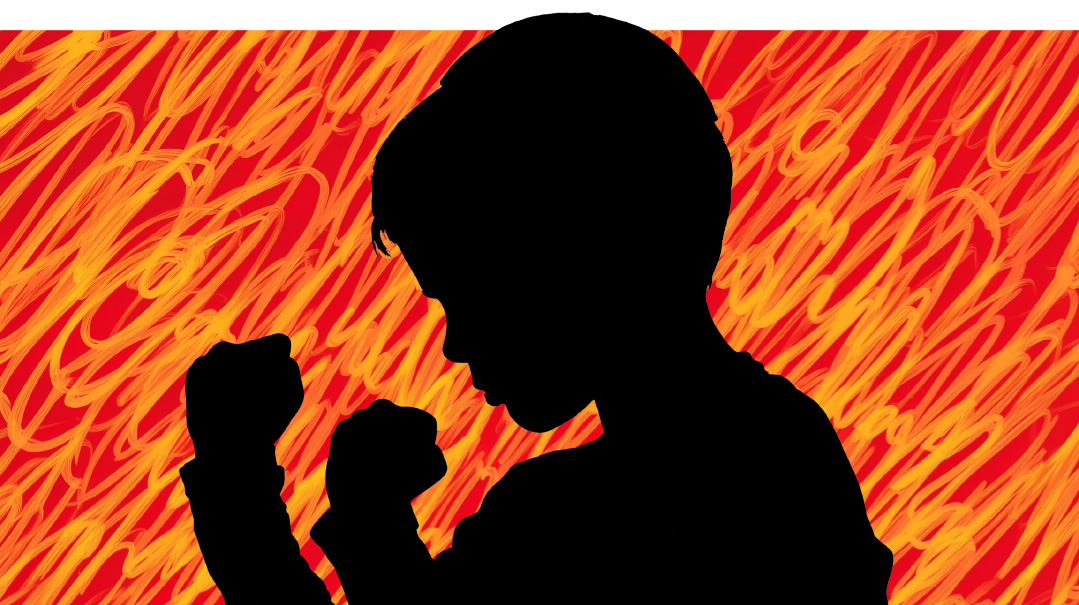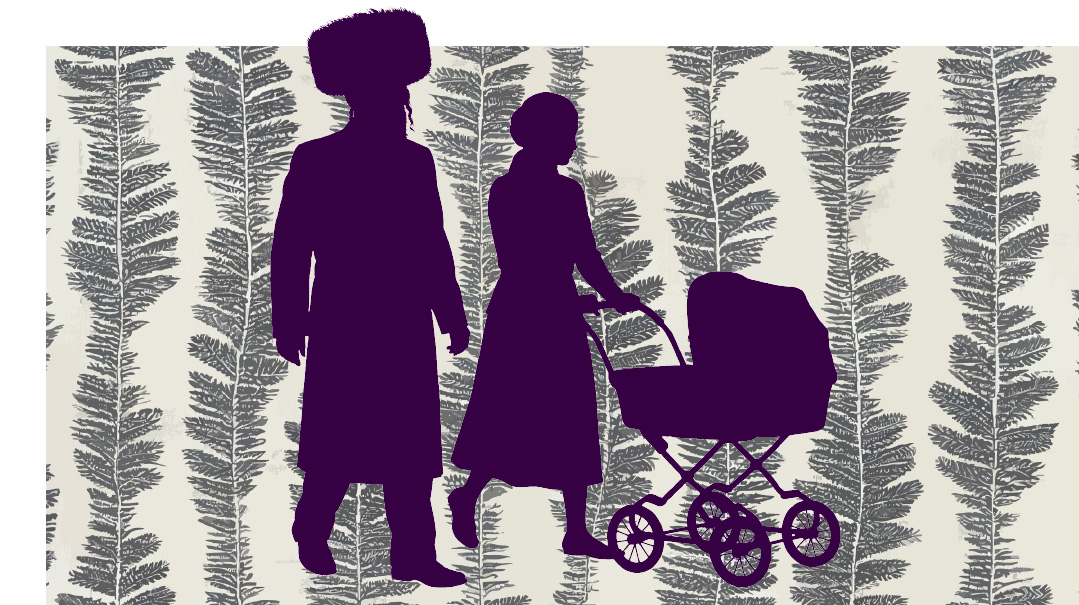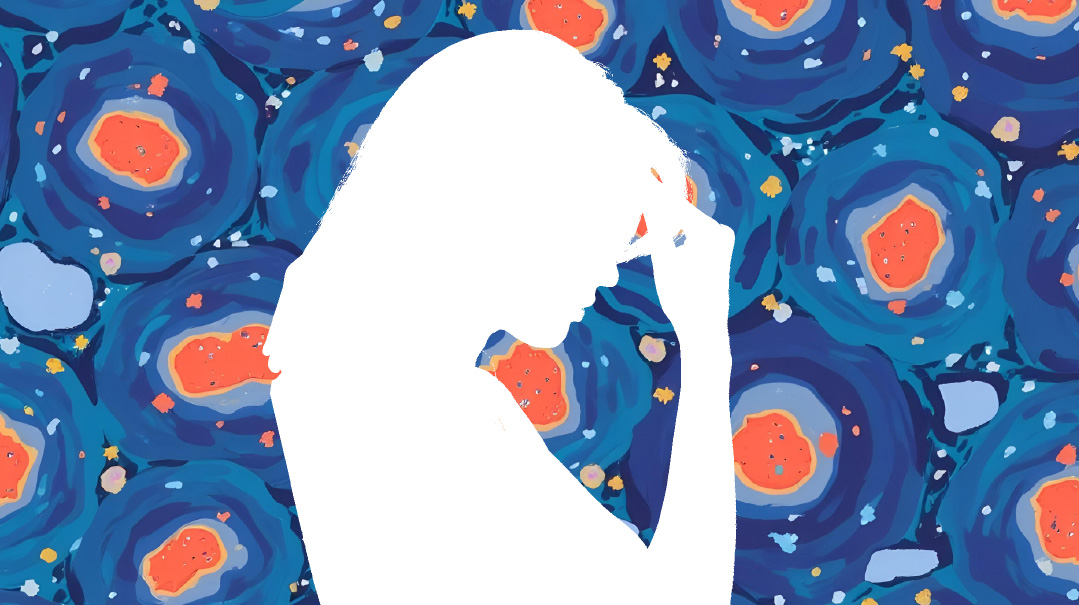Know This: Eating Disorders

The perfect storm caused my eating disorder

Photos: Elchanan Kotler, Jeff Cohen
My struggle with anorexia nervosa didn’t start overnight. Many people assume all eating disorders stem from a singular event or trauma. But for me and many others, the disorder was caused by a perfect storm of genetic, environmental, and personality-related factors.
Since elementary school, I’d always been the tallest in my class, and I also had a bigger body than many of my peers. I couldn’t shop at the same stores as my friends. Some of my “best friends” joked about my weight and how much I ate. But as a nine-year-old, I couldn’t defend myself. Instead, as the people-pleasing, wouldn’t-hurt-a-fly child that I was (and sometimes still am), I cried at home, where no one would see.
Scarred by the ridicule, I became somewhat rigid about my food intake, and once I entered high school, my food behaviors increased. My parents took me to a dietitian, who gave me rules to follow. But while I strictly adhered to her guidelines, many of my disordered behaviors persisted (common for those with an eating disorder).
Unfortunately, recovery is not a linear process. During my year in Israel and first year in college, my eating disorder resurfaced. I was hardly eating, battling crushing depression, and lacked energy. Activities I’d once enjoyed became a burden, as I isolated myself from my friends, turned down invitations, and spent most days counting down the hours until bed. (It should be noted that there are many types of eating disorders, and symptoms can look different for every person.)
Once again, my parents intervened, and I began attending nightly meal support groups. At the beginning, I hated every minute. The meals consisted of food delivered from a kosher restaurant, inane dinner conversations with complete strangers, optional dessert, and finally, 15 minutes when the facilitating therapist would ask us how our meal went.
I hardly spoke for the first month. Neither did any of the other girls at the table. We were all so exhausted by the demons we were fighting, as well as the depression and anxiety that accompanied our disorders, that we had no energy to talk. Our awkward, angry silences were broken only by the therapist’s attempts to start a conversation.
But around that dining room table healing began. Slowly, it became a safe place where I felt understood and supported. We learned to grow together, laugh together, and build each other up. We saw the light come back into each other’s eyes. There were a lot of tears, a lot of anger and frustration and sadness, but there was also submission — and, honestly, a sense of relief of being forced out of my own self-imposed torture. My journey was far from over, but this was an important turning point. Seeing their progress, I began to believe there was hope for me too.
Many of us were pursuing advanced degrees, yet the drive and perfectionism that served us so well in our educational careers had landed us at a meal of meatballs and spaghetti and angst. Of course, not everyone who struggles with an eating disorder possesses these character traits, but there was something comforting about finding people who shared my struggles.
In addition to the many experiences that contributed to my developing an eating disorder, my people-pleasing, overachieving nature, coupled with an abysmally low self-esteem, contributed greatly to the development of the disorder. The word “sorry” is probably the most commonly used word in my vocabulary. Though I’m told time and again by my therapist, “You don’t have to apologize for your existence,” it’s hard to believe that when you’re trying to make yourself nonexistent.
My people-pleasing quality was exaggerated while I was entrenched in my disorder; I was merely an empty vessel trying to pour every last drop into supporting others, setting myself on fire to keep others warm.
Many people will say that an eating disorder is all about “control,” and, for some, that’s true. But for me, it was about fear of change. My transition into early adulthood included so many changes — and instead of coping, I focused on food and weight. What I’ve learned in recovery is that life is full of changes and we’re endlessly evolving into new versions of ourselves. While I still find change disturbing, I’ve come to accept it, embrace it as a sign that I’m living and growing.
It’s taken a lot of work for me to learn to roll with the punches — or at least acknowledge my feelings before doing something destructive. And that’s the most important point: Whatever pain I’m experiencing is temporary. Sometimes I just need to wait it out and ride my emotions until I can get off the roller coaster.
It can be hard to break these patterns: Destructive coping mechanisms are inherently illogical. Sometimes I have to reach out to a friend or just distract myself with work, baking, crafts, anything until the urges pass.
I’ve learned to be kind to myself in those moments, even though my mind is screaming otherwise. I’ve learned to stop judging myself for what I’m not and accept myself as Hashem sees me, “b’asher hu sham” — as the living, breathing, stumbling, struggling, precious daughter that I am.
Why am I telling you this? Because virtually everyone knows someone struggling with an eating disorder. In our community, in particular, eating disorders are rampant. A study of Brooklyn’s ultra-Orthodox and Syrian Jewish communities found that 1 out of 19 girls suffered from an eating disorder — a rate about 50 percent higher than the general population (National Eating Disorders Association).
You, as a supporter, could be his or her greatest advocate or biggest trigger, reinforcing the judgments that are already playing on repeat in his or her mind. Many afflicted individuals lack the awareness to explain their struggles. Our feelings are so deeply buried that sometimes we don’t even know what we feel, but we use our bodies to communicate our pain.
So that’s why I am speaking up: To give voice to those warriors battling the monster in their mind, to help loved ones become stronger supporters. And to all the women, men, boys, and girls, whether you’re in the grips of your illness or on the road to recovery, know that there is hope. Full recovery is 100% possible.
Anorexia was an anesthetic that protected me from uncomfortable emotions. But when I told my therapist, “I liked it better without feelings,” she responded, “No, you’re struggling with hard feelings. Most of life will be beautiful feelings. You’ll miss out on them if you don’t feel anything.” And, believe me, feeling genuinely, authentically happy is very worth it.
Things not to say to / in front of me
“You look sick,” “You look so healthy now,” or anything about my body
Whether you’re trying to be complimentary or not, you’ve either placed my attention on the body I’m already so uncomfortable in or you’ve highlighted the societal ideal that how I look makes me more or less beautiful, worthy, or lovable.
“Why can’t you just eat?” or “why can’t you stop eating?”
Well, if it were that easy, if my brain didn’t feel as if it was lighting on fire every time I put food in my mouth, I wouldn’t be in this mess in the first place. Please be patient with me.
“I’m being so bad by eating [insert vilified food here].”
What you eat does not make you good or bad. Choosing between a cookie or lettuce is not a moral decision. Using this language reinforces the attitude that what we eat determines our weight and our worth.
“I’m going to need to go to the gym after this.”
Many people with eating disorders also suffer from exercise addiction. Please model that you don’t need to earn your food or “work off” something you enjoyed.
Things you should say
“I’m really concerned about you.”
“You’re not yourself lately, are you okay?”
“I’m here if you want to talk”
“It’s great to see you smiling and laughing again” (if the person’s in recovery)
Nicest thing anyone has said to me
One of my roommates told me, “I think you’re really courageous and really strong.” It was so moving because the strength it takes to fight this battle often goes unnoticed, sometimes even by the warriors fighting it.
(Originally featured in Family First, Issue 615)
Oops! We could not locate your form.












